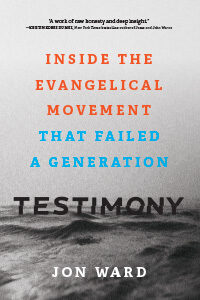From The Dispatch: The Temptations of Revival and of Going Viral
I grew up in a church where every Sunday we gathered in a large auditorium. I was surrounded by hundreds of people. The drums and electric guitar were loud, the lyrics were hypnotic, the chord structures were simple and appealed to my emotions. I’d close my eyes, bow my head, raise my hands, and sway with the music. Everyone else did the same.
It is hard to describe to those who haven’t experienced it what these church services are like. It’s beyond a mood-altering state. It is, at times, an emotional nirvana.
But over time, growing up in such an environment, and especially as I reached young adulthood, I questioned what it was that we were all chasing. It seemed like more of a quest for an emotional experience than anything else.
Over the course of my early 20s, I began to develop a strategy for how to navigate these emotional moments. I would sing the songs and leave myself open to experience emotional highs, but I wouldn’t seek them. I learned to flex muscles in my mind, to stop the emotions pretty quickly as soon as they showed up. I turned away. I went the other direction.
I didn’t feel as if I was shutting down. Rather, I was introducing some self-control into the equation. I wanted to direct my religious and faith energy toward a life well-lived, more so than a series of self-centered experiences.
Emotion and passion have their place. They are vital ingredients to a well-lived life. But I am also cautious toward emotion because of the way it can cloud our judgment and corrupt our decision-making.
These pitfalls exist in journalism. Social media fame and virality tempt me and others in my profession to pursue notoriety at the expense of integrity and public service.
A viral tweet can have a narcotic effect and get you thinking subconsciously, “How do I do that again? How do I get hundreds or thousands of likes and retweets again?”
Engagement is attention. Attention is power. Even a small taste of that kind of power can be inebriating. The pleasure receptors in our brain that are activated by this dopamine release are similar to how our body reacts to ecstatic religious experience.
Read the whole thing here at The Dispatch

